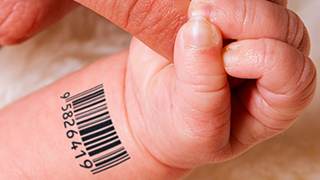James Whale defends eugenics on talkRADIO

Tim Dieppe comments on his interview with James Whale on TalkRadio about three-parent babies last night. James defended the practice of eugenics in the interview, arguing that we could improve humanity.
Tim shows that this leads to discrimination, viewing some people as better humans than others because of their genes. Eugenics violates the principle that all people are equally valuable as made in God’s image.
I engaged in a lengthy and lively discussion with James Whale on TalkRADIO about the ethics of three-parent babies last night. This followed approval of the controversial process by the Human Fertilisation and Embryology Authority this week. One of the arguments I used was that there is a slippery slope from allowing this technique, to allowing genetically-modified designer babies. This means that we are accepting a world of eugenics where we select which kind of people are allowed to live.
As the discussion progressed, James Whale agreed that this does open the door to eugenics. He argued that eugenics is a good thing that we ought to promote. Here are some of the dialogues from the discussion:
JW: "That's surely a good thing, I would have thought Tim, if we can breed out of society all the defects and all the illnesses."
JW: "Humans need to be modified, eventually we can modify the aggression out of humans."
JW: "People get very worked up about eugenics. What is so bad about developing a human being that isn't susceptible to some of the appalling illnesses that we can now get?"
JW: "I don't mind what you do, as long as you don't try and dictate to me what I should do."
TD: "Well, you are dictating to future generations. You are forcing an effect on the whole human race here by saying we need to change the genome."
JW: "Eventually that's what hopefully will be done isn't it?"
JW: "You cannot tell me that humanity would not be better off without some people!"
TD: "You obviously are a eugenicist if you say that."
JW: "People use eugenics as a dirty word. As far as I can tell isn't eugenics the improvement of mankind?"
TD: "That is the aim, yes, and therefore the eradication of certain people. Not allowing certain people to live."
TD: "How do we set the standard of what is a better human here?"
TD: "You're saying some people are better than others because they have better genes than other people, and that's exactly what eugenics is. You're saying I'm a better human, ... and you're are sub-human, that is where it's going to."
Eugenics is indeed a dirty word, as James said, and with good reason. It was shamefully practiced in Nazi Germany and in the United States in the last century. Eugenics aims to improve the human race by selecting what kind of people are allowed to live or be born. It is widely associated with racism because that was central to the worldview that it arose from. It is based on the idea that some people are better humans because they have better genes. Rather than accepting that all people are in the image of God and, in the words of the US constitution, “created equal”, it promotes the idea that some human lives are worth more than others. It therefore discriminates against those with 'defective' genes. It is also vulnerable to abuse by those in power and risks leading to loss of genetic diversity in the human race. Eugenics is trying to experiment with the human race and the human genome with unforeseen possible consequences.
The approval of the three-parent baby process introduces a form of eugenics into our society. This is another step away from accepting that all human life is sacred because we are in the image of God. James Whale is unashamedly promoting eugenics in a much larger scale, which is where this new secular ethic will lead.
Related Links:
Further questions over 'three-parent babies' fertility technique
Worlds first 'three-parent babies' born
Babies made from three people approved in UK (BBC)
James Whale gets angry with Christian Concern's Tim Dieppe over three-parent babies (talkRADIO)
cmf file 51 (2013) - three-parent embryos for mitochondrial disorders (CMF)Tim Dieppe speaks to talkRADIO about the ethical concerns surrounding 'three-parent' babies
